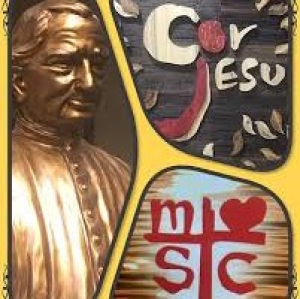Peter MALONE
Monkey Business/ 1931
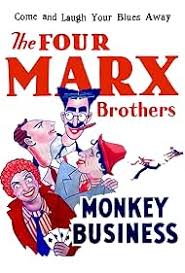
MONKEY BUSINESS
US, 1931, 77 minutes, Black-and-white.
Groucho Marx, Harpo Marx, Chico Marx, Zappo Marx, Rockliffe Fellowes, Harry Woods, Thelma Todd, Ruth Hall, Tom Kennedy.
Directed by Norman Z. McLeod.
Monkey Business is the third of the Marx Bros comedies at Paramount in the early 1930s. It was the first written for the screen and filmed in Hollywood (the earlier two at Paramount Studios in New York)
The setting is a transatlantic liner, the brothers stowing away in barrels, heard singing, exposed, then chases all around the ship throughout the film, tantalising the captain, usurping his authority, tormenting his assistant. The film gives the opportunity for the Marx Bros to establish their screen personas, developing them from their theatre performances, Groucho and his moustache, eyebrows, stooped walk, wisecracks, cigar, twisting the plot to his own advantage. Chico does some comedy but, finally, shows his versatility at the piano. Harpo, in the early films, chasing the women (almost, indeed, harassment), not talking, but finally getting the opportunity to attend of the film to play the harp. The Zeppo is the straight man, involved romantically with the daughter of a gangster on the ship.
There is a lot of comedy with the gangsters, Chico and Harpo hired as hitmen, Groucho twisting loyalties, and the femme fatale, wife of the gangster, Thelma Todd, who wants more out of life and has some innuendo sequences and lines with Groucho.
The film is well remembered but, audiences coming to this film in the light of the later films at MGM, it looks like a promo for their careers and is more than a bit silly!
Our Little Secret
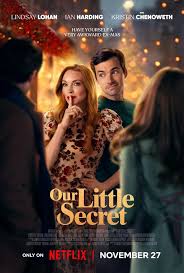
OUR LITTLE SECRET
US, 2024, 101 minutes, Colour.
Lindsay Lohan, Ian Harding, Kristin Chenoweth, John Rudnitsky, Katie Baker, Jack Brennan, Tim Meadows, Judy Reyes, Henry Czerny
Directed by Stephen Herek.
One of several 2024 Christmas films screened on Netflix. It is a star vehicle for Lindsay Lohan, following her Irish adventure, Irish Wish.
The film opens, with some animation sequences, indicating the two central characters, Avery, Lohan, and Logan, Ian Harding. She is ambitious in her work, he wanting to propose,her refusing and going to London… And some more animated indications of 10 years passing.
In 2024, Avery is dating Cameron and going home to meet his parents for Christmas. In the meantime, Logan is almost engaged to Cameron’s sister. When they unexpectedly meet, they decide to keep their past relationship secret. Which, of course, leads to all kinds of embarrassing situations, semi-revelations, cover-ups.
But, the most arresting characters in the film is the dominating mother played by Kristin Chenoweth, controlling the household, eccentric manner and speaking, demanding how Christmas should go.
In terms of secrets, there is a revelation that there are all kinds of secret relationships and the guests for Christmas, even Kristin Chenoweth knowing her husband’s affair but carrying on regardless. And she is dominating to her two children. Cameron meeting a friend from the past and… Inevitably…
Audiences may enjoy some farcical situations, Avery eating the special biscuits, blaming the dog, taking it to the vet as a cover, conniving with the vet, eventual revelations. However, the annoying character is the younger brother who spies on everything, demands bribes for cover-ups.
Eventually, revelations, Avery’s father coming to visit (and unexpected genial term from Henry Czerny), great job opportunities for Logan and a romantic ending.
Another Christmas film for those who love the genre to add to their accumulation.
Moana 2

MOANA 2
US, 2024, 100 minutes, Colour.
Voices of: Auli'i Cravalho, Dwayne Johnson, Chung, Rose Matafeo, David Fane, Awhimao Fraser, Temuera Morrison, Rachel House, Alan Tudyk.
Directed by David G. Derrick Jr, Jason Hand, Dana Ledoux Miller.
It is a surprise to find that the first Moana film was released in 2016, 8 years ago. There had been an intention to do a sequel as a television series in 2020 but that did not happen. Instead, here we are in 2024, meeting the characters again, travelling back thousands of years, to the islands of the Pacific, to the Polynesian inhabitants so long ago.
But audiences who were enthusiastic about the first film, and they certainly were, now have an opportunity to meet the characters again, the intrepid Moana (Auli'i Cravalho playing Moana again), the companion pig and chicken (although this reviewer had very low tolerance for the chicken as a character, rather annoying, caught in all kinds of silly situations – but that is a comment from an older viewer, while the youngsters will probably want more!).
In many ways, this is a repetition in story of the first film. We see Moana’s community, the chief her father, her great reputation she had achieved as a sailor and “Wayfinder”. But, the community is isolated, not sure where there are more people, more islands in the ocean. As in the first film, there is the heroic Maui (voiced by Dwayne Johnson) who has been a live for thousands of years, his body covered in tatters which come alive to tell the story of his adventures. He comes to join Moana and another group of sailors, a young man who idolises Maui and very feisty young woman and old grandfather, cantankerous, and the pig and the chicken!
So, lots of sea adventures. A visit to an island of coconuts who have a life and language of their own, seem hostile but are friendly, contribute to the expedition across the seas. There are all kinds of creatures in the sea, even waves of the ocean coming alive, and, as the crisis mounts, vengeful deities, a strange malevolent queen who has the power to destroy the wayfarers, and ever-increasing storms which take their toll on the expedition.
But, in the spirit of the traditions of the Polynesians, their seafaring, their settling of the islands around the Pacific, there is the revelation that they are not isolated, that there is great joy in finding other communities and uniting with them. (And, the alert audiences will hear many New Zealand accents, Rachel House, Temuera Morrison, Jemaine Clement, who appears in the mid-final credits sequence, jokey, but those who instantly make a beeline for the exit as words appear on the screen at the end, will miss it.)
So, a variation on the Disney princess, the Polynesian Princess, Moana, colourful action, intriguing characters, the importance of storytelling, images, not only in caves but on the tattoos of the characters, bringing those stories to life. And, this time there are some jolly songs, pleasant interludes, tunes and lyrics that are easily accessible, especially to the younger audience. And, indeed, Moana is a film for the younger audience, very strong, of course, for the young girls who will enjoy it.
- The popularity of the original film? Television series not eventuating? The happy reception of this sequel?
- Disney style, the animation, the drawing of the characters, their interactions, humans, animals, fantasy creatures, locations, the sea, islands, the coconuts…? The musical score, the role of the songs, the chirpy lyrics, the tunes?
- Intended audience, the youngsters, younger girls, the adventure tale of a Princess who is not actually a Princess?
- The establishing of Moana as character, her quest in the first film, the Wayfinder, her achievement, the relationship with Maui, with her family? Wanting communication with others in the ocean? The initial venture, the storm, her achievement, return home? The reception, the celebrations on the island, her father, mother, the family?
- The introduction of the familiar characters, Maui, the demigod, collaboration previously with his return, the interactions, the banter, travelling with her again?
- The pig, friendly, cuddly? The chicken, fiascoes, comic, irritating?
- The new quest, her companions on the journey, Lote as a vigorous young female, Moni, young, enthusiastic, his admiration for Maui? Kele, the cantankerous father? Leave, help, collaboration marijuana
- The visualising of the voyage, the sea, the waves, the oceans, the arrival at the coconuts island, the interactions, the help, the coconut guiding them? Maui and his advice, interactions with minor?
- The vast island, the split, separated, the adventures, the dangers, surviving?
- The quest to confront the angry God, to discover more humans?
- Matangi, under the spell of the God, her life, machinations, her song, decision to help, confronting the God?
- The achievement, the discoveries, the return home, the welcome? Moana as a true Wayfinder?
Fiore Gemello/ Twin Flower
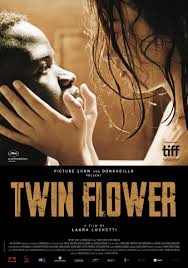
TWIN FLOWER/ FIORE GEMELLO
Italy, 2018, 96 minutes, Colour.
Anastasiya Bogach, Kallil Kone.
Directed by Laura Luchetti.
Twin Flower is a small film from Italy, a focus on two young characters, their backgrounds, meeting, interactions, mutual protection.
The initial focus is on Bsim, from Ivory Coast, trying to help people at supermarkets with their trolleys but ousted by the manager, going on the road, recent migrant, no papers. The next focus is on Anna, running away from a man in pursuit who has been wounded. Her story is not explained until flashbacks later in the film, her relationship with her father, their bonding, his being involved in refugee trafficking, and his being killed by his partner, in defence of his daughter.
Basim is very sympathetic. Anna that is traumatised and does not speak. They travel together, gradually supporting each other, she employed by a sympathetic arranger of flowers, Basim revealed as being the object of sexual encounters in the town. But he finds a place where they both can live.
The audience is invited to empathise with the two characters, the traumas from the past, their coming alive in this encounter with each other, surviving dangers when Anna is pursued by her father’s killer, defended by Basim, and continuing on the road together.
The film is very sympathetic, a female perspective by writer-director, Laura Luchetti,
- The title? The work with the flowers and arrangements? The image of the flowers, and discovering the flowers, putting them in a vase?
- The setting, Italy, the South, ordinary life, supermarkets, flower arrangements shops, stalls, landscapes, industry, the fields and forests? The musical score?
- Basim, from Ivory Coast, his age, no papers, trying to help at the supermarket, being ousted, on the Road, being picked up and offered the meal, the encounter with Anna, her not talking, the sharing food with him, the continuing together, getting the job, Basim refused, his night wanderings, the sexual encounter and the repercussions, in the bath, the encounter with Anna, accosted by the man and his refusal, the sympathetic androgynous man, protecting Anna, the assailant, his saving Anna?
- Anna, running from the man, his wound, her not talking, on the road, the encounter with Basim, giving him some food, his leaving, her following, sharing the road, her getting the job, enjoying arranging the flowers, the sympathetic owner and his support, the flashbacks, her father and the happy times, his death, the pursuit by the killer, his intentions with her, in the vehicle? The bonding with Basim, the sexual encounter, her packing, the pursuit of the killer, saved by best seem?
- The killer, people smuggling, his eye on Anna, the confrontation with her father, the killing? His pursuit, the drive, interrogating the flower arranger, the confrontation, the violence, Basim rescuing Anna?
- The couple walking on together? To what future?
In Her Place/ El Lugar de la Otra
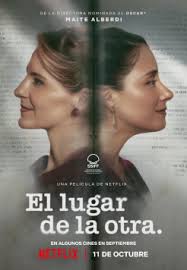
IN HER PLACE/ EL LUGA DE LA OTRA
Chile, 2024, and 89 minutes, Colour.
Elisa Zuleta, Francisca Lewin, Marcial Tagle, Pablo Macaya.
Directed by Maite Alberdi.
This crime and legal drama is based on actual characters and events, 1955, a writer killing her lover publicly in an exclusive hotel in Santiago.
It has been written and directed by Maite Alberdi, documentary filmmaker (Oscar-nominated for The Mole Agent).
However, the film focuses on a judge and his being appointed to interview all the witnesses as well as the accused, to make a judgement for a prison sentence, and the focus on his legal assistant, Mercedes, an intense performance by Elisa Zuleta. The film offers background to Mercedes’ character, her ordinary life, financial struggles, her husband a commercial photographer, two sons at home. However, working with the judge, her life is open to all kinds of interesting experiences, encounters, different ways of assisting the judge in his enquiries.
The meaning of the title becomes clearer when Mercedes is asked to look into the accused’s apartment, getting the key, becoming absorbed, infatuated, continually returning, wearing the accused’s wardrobe, her perfume, becoming more and more at home, even in an encounter with a previous lover of the accused who finds her in the apartment. She continually watches the accused, giving her cigarettes, and eventually sent to photograph the Good Shepherd institution where the accused is lodged.
Not only is Mercedes in her place in terms of psychological identification with the accused, but literally in her place, in the apartment.
Mercedes needs and wants a break from the noise at home, her snoring husband, her rowdy children, her talkative extended family, her husband eventually following her to the place and discovering her secret and what she wants.
Meanwhile, the author writes a book in her confinement, and it emerges that she was imitating an actual story 1941 about a previous England author, a similar killing, and her eventually being pardoned.
And, a final drama when one of Chile’s most eminent poets write a letter to the president and effects a pardon for the accused, Mercedes having to move out, watching the freed woman return to her apartment.
What we have watched the accused with great interest, most of our attention is on Mercedes and the intensity of her psychological behaviour.
- The title, Mercedes and her identification with the author, psychological and identification? But her literally moving into the apartment and living her life?
- The 1955 setting, society, the hotel, the women going inside and only on invitation, the situation, the author, shooting her lover, the blood on her face, escorted out, the media, shouting, photographed, extensive stories about her drinking the blood of her victim…?
- Mercedes, her character, at home, her snoring husband, getting up, breakfast, her sons, the confined living space, her husband and his customers, the photos, Mercedes welcoming the customers? The contrast with her going to work, in the legal office, with the judge, the team, the judge relying on her, her contributions to the investigation, typing, the judge and the interviews?
- The accused, the judge and his interrogations, her lack of collaboration? The issue of her being held, bail, prison, her going to the Good Shepherd institution, with the other prisoners, the nuns? Mercedes identifying with her, looking, judging her guilty, the cigarettes?
- Mercedes, going to the apartment, to get the clothes, looking in the mirror, identifying with the accused, her going back to the apartment, the wardrobe, the perfumes, reimagining the life there, her continued returning, literally in the place of the accused?
- The progress of the case, the lawyers, the witnesses, the brother of the murdered man, the sister of the killer, the different perspectives?
- Mercedes, typing, observing, going home, staying at the apartment, her husband’s concern, the big family gathering, her finding it oppressive, her husband following her, discovering, staying the night?
- Mercedes asked to photograph the Good Shepherd institution, her visit, the discussions with the accused, the range of photographs, the accommodation, herself?
- The final judgement, the sentence, 541 days?
- The poet, the appeal to the government, the granting of the pardon?
- The consequences for Mercedes, having to move out, watching the accused return home?
- The portrait of Mercedes, her ordinary life, the exhilaration of her legal work, the identification with the accused, living another life, her future?
My Favourite Cake
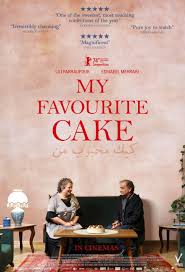
MY FAVOURITE CAKE/ Keyke mahboobe man
Iran, 2024, 97 minutes, Colour.
Lily Farhadpour, Esmaeel Mehrabi.
Directed by Maryam Moghadamm Behtash Sanaeeha.
For many decades, films from Iran have been prominent at film festivals in winning awards from Catholic and ecumenical juries. The country, often under world scrutiny and suspicion, international politics and often rigid imposition of Islamic law, has nevertheless produced a long line of films which dramatise human values, that can be appreciated worldwide.
And this is definitely the case here. The film was made in Teheran but the makers were not allowed by the government to travel to festivals to promote the film, seen to advantage in Berlin, 2024. And the film is, in many ways, critical of the law, interpretations, impositions by the morality police, especially as regards the status of women.
But, that said, this is a film which will appeal to a wide range of audiences around the world, especially female audiences. And, with the central character they did 70, a great appeal to older women.
We are introduced to a widow of 30 years, a former nurse, Mahin (a wonderfully sympathetic performance from Lily Farhadpour. Mahin is quite well off, lives alone, goes to the market, meets friendly people, cooks for a special meal for a group of old friends, women friends who gather to chat about the past but some concern about Mahin and her isolation. The women enjoy the chat, the provocation, comments about health, comments about socialising.
And the film is really about this kind of socialising, Mahin going to what used to be the Hyatt for morning tea, finding that it is now the Freedom hotel with a different style. She has coupons for a meal at a more moderate restaurant, listens to men chatting, notices an isolated elderly man hurrying through his meal. She listens to his comments to the other men, follows him out, sees that is a taxi driver…
The rest of the film is about the couple going to her home, each breaking out of their isolation, each with their own past story, some sharing of wine, some music, even dancing, food, conversation in the garden, and an increasing sense of attraction and intimacy. The two of them are more and more alive in a way that they have not been for years.
The elderly taxi driver, 70, Faramarz, is played by veteran Iranian he is a wonderful presence. Actor, Esmaeel Mehrabi. He is charismatic in his way but, one soon realises, that we are responding to him, not as an actor playing a role, but as the actual character, as if we were watching him in documentary reality.
Part of the conversation highlights the subordinate role of women in Iranian society, the strictness of the control by authorities.
However, audiences will be glad to have made the acquaintance of Mahin and Faramarz, to have shared their moments of happiness and, poignantly, moments of sadness.
- The focus on life in Iran during the Islamic Republic, the focus on women, middle-class ageing women, loneliness, companionship?
- The Iranian setting, the home and garden, the restaurants, the markets, taxi rides, sense of realism? The musical score and background? Persian songs?
- The story of Mahin, 70 years old, 30 years a widow, children overseas, her career as a nurse, retirement, the comfortable home, undocumented and likely to being taken by the government, the interiors, her garden and its importance? Her waking up in the morning, sleeping till noon, phone calls, going to the market, the taxi ride, the driver carrying her goods, her cooking?
- The reunion of the friends, their chatter, a focus on ageing, ailments and illnesses, focus on relationships and memories, Mahin presiding, enjoying the visit, the urging of her to make friends and go out?
- Phone calls with her daughter, images, the little boy and brushing his teeth, the daughter and her concern?
- Her going to the hotel, her pension cards, the change in the former Hyatt to Freedom? Her being outdated even on the drinks?
- At home, quiet, watching television, weeping at the television films?
- Iranian top directors and their many episodes in films of taxi rides, car rides, interiors, different angles? And the taxi rides in this film?
- The decision to go out, going to the restaurant, sitting at the table, the four men and their discussions, on going to protests? Seeing Faramarz’s sitting alone, eating, the taxi driver, comments to the men? Mahin watching him?
- His leaving, taxi driver, going to the headquarters, Mahin following him, the enquiries, waiting for him to return, the conversation, asking him to drive her home, his stopping for the medication, the rain? His willingness to visit, parking the car at a distance, her going in, make up, getting herself ready, change of address? The nosy neighbours, the visit of the woman who heard voices, Mahin making excuses?
- The character of Faramarz, his story, military service, not believing in the war, his pension, the brief set up of his marriage, the divorce, living alone, each day the same as the next? The attraction, he and her hopes?
- The process of the evening, the chat, the food, the wine, his drinking readily, her preparing the food, the herbs from the garden, his fixing the lights? The shower, sitting in their clothes? The aftermath, more conversation, sharing of memories? The music, Mahin dancing, Faramarz’s gradually dancing, the exuberance? The discussions about relationships, intimacy, sexuality?
- Faramarz, the drinking, effort, his going to lie down? Mahin discovering him, disbelief, his death? Waiting, washing him, covering him, the digging of the hole in the garden? Drag him out, the burial?
- The finale, the camera at Mahin’s back, the audience contemplating what it happened?
Your Monster
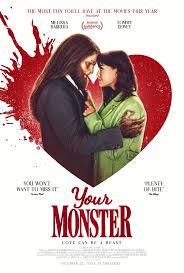
YOUR MONSTER
US, 2024, 103 minutes, Colour.
Melissa Barrera, Tommy Dewey, Edmund Donovan, Meghann Fahey, Kayla Foster.
Directed by Caroline Lindy.
There have been many variations on the theme of Beauty and the Beast, especially the classic fairytale and the different film versions, animated and live-action. But, the theme has been taken for all kinds of dramas, the male beast, the female beauty, the interactions.
This is a contemporary variation on the theme, the focus on a young woman, the beauty, Laura, Melissa Barrera, working with a composer to create songs for a musical production, but her being diagnosed with cancer, surgery, and the composer abandoning her.
The narrative has the background of the putting on a show on Broadway, the producers, money, intervening in the casting, the director, the writer, the various actors and dancers and their ambitions.
However, Laura is a recluse, one of the dancers a friend but whom she will discover has betrayed her. She does want to participate in the musical, even auditioning for a dancing role and being particularly unsuccessful at the audition. Yet she is hired as part of the ensemble.
But the key to the film, not a long running time, is Laura’s discovery of the other person who lives in her apartment, the Beast, human but hairy, a touch handsome, a touch more animal-like. He has a great influence on her, continued dialogue, his presence, sometimes absent, encouraging her, disappearing, but finally her going to a party, glamorously dressed, and his arrival there, well presented, and confronting the composer.
The film is particularly directed towards a younger audience, a younger female audience, identifying in many ways with the central character and her ambitions and her difficulties, but intrigued by the character and influence of the Beast.
But, there is the theme of the beast not just being external, but being part of the character of the young woman, the beauty and the beast in herself, the struggle, the creativity, the destructive aspects.
- The title? Her monster? expectations?
- The use of the Beauty and the Beast fable, Laura and her beauty, character? The Monster, his appearance, his behaviour, violent and vicious, yet charm within? The theme of the dual aspects of the one personality, beauty and beast?
- The opening, Laura in hospital, cancer surgery, her mood, the corridor, her memories, her relationship with Jack, the composing for the musical, his impatience in the hospital, leaving her, her desperation? Going home, the lonely apartment, Maisie as her friend, flighty, promising support?
- Laura at home, by herself, sad, eating, memories, hearing noises?
- The appearance of the Monster, his appearance, manner, his memories for Laura when she was a little girl, her trapping him in the room?
- No background for the Monster, but his presence, the vicious moments, the tormenting and teasing moments, his attitude towards Laura, her screaming?
- Their gradually getting used to each other, life at home, conversations, his understanding, his talents, his rendition of Shakespeare, his singing?
- The effect on Laura, her decision to go to the audition, to face Jack? The friendly young man and letting her in? Seeing Jackie Denman, her reputation? The audition, Laura’s failure, going home?
- Laura and the monster and their discussions, his encouraging her, getting her to scream, break the plates, break out? The interpretation of these actions as her inner monster surfacing challenging her?
- Her defiance, the interview with Jack, her being accepted as an understudy, part of the chorus, her presence, going to the rehearsals? Her watching Jack and his relationship with Jackie? Her envy, jealousy, feelings of revenge? Yet love?
- The Halloween party, the invitation to the Monster, his refusal, her dress, admired, watching Jack and Jackie, the rage rising? The Monster appearing, smartly dressed, the dancing?
- The confrontation with the Monster, his disappearance, her grief?
- The further rehearsals, the confrontation of Jack, bonding with the other members of the cast, Maisie and her betrayal with Jack?
- The performance, the first night, the audience, a powerful performance, her singing, her increased rage against Jack, blood smeared, the corpse on the stage floor, the finale, and beast taking over the beauty?
Twas the Text Before Christmas

TWAS THE TEXT BEFORE CHRISTMAS
US, 2023, 83 minutes, Colour.
Merritt Patterson, Trevor Donovan, Jayne Eastwood, Eric Peterson, Rob Stewart.
Directed by TJ Peacocke.
The title plays on the famous Twas The Night Before Christmas. A social media variation – where the leading lady, Addie, Merritt Patterson, a chiropractor in New York City, receives a mistaken text from a grandmother in Vermont, Nana. But, that\ey begin talking, friendship, and Addie going to Vermont for Christmas.
This is one of the many popular films for television with Christmas themes – and they are there in abundance. This film has the distinction of being G rated and so available without reserve to the widest audience.
It is all very familiar material with the variation on the texting. Those who make continual pleas for original material, not for them. For those who enjoy the conventions and the variations, the atmosphere of Christmas celebrations, romance, younger generations, older generations, this is the kind of film that is popular.
There are the romance themes, Adie and her being left by her longtime boyfriend and his getting engaged quickly, her friendship with Traci, fellow chiropractor, happily married, holidaying in Florida, always inviting Addie. The complication is that her mother has died, her brother works in Australia, her father, genial, spends one Christmas in Australia and the next with Addie in New York. Complications in Australia, and he accepting the invitation to Vermont, her going to Vermont and meeting the family, especially James, Trevor Donovan, who is a doctor in service throughout the year in South America.
Lots of family cheer, a very delayed romance and no really explicit acknowledgement of it until the last five minutes! But Nana, the grandmother, a bright Jayne Eastwood, is attracted to the widower who runs the local bed-and-breakfast.
While we can see what is coming all the time, the enjoyment is the looking forward to it and seeing how it all works out.
Very American Christmas, some carols in the background, the generic grace before meals, not a religious Christmas but a very humane one.
10 Days of a Curious Man
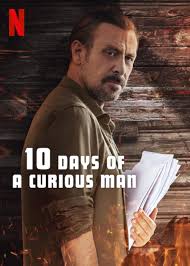
10 DAYS OF A CURIOUS MAN
Turkey, 2024, 110 minutes, Colour.
Nejat Isler.
Directed by Uluç Bayraktar.
This is the third film in a trilogy of Turkish crime investigation tales. It follows 10 Days of a Good Man, 10 Days of a Bad Man. And many of the cast appear in the three films.
The focus is on Sadik, seen investigating crimes of the previous films, his writing a novel, the manuscript rejected, his reaction and further investigations.
There are all kinds of complications in the city, burning buildings, rebuilding, zoning and forests, political corruption, personal corruption, intrigues in relationships.
Sadik and his associates see themselves as the equivalent of the police, vigilante imposers of the law, including executions.
This film, of course, presupposes audience knowledge of the previous films and the characters and response to them – it could stand alone but it does presuppose a great deal.
But, for the fans of the previous films, popular entertainment.
- The third in the trilogy? Popularity? Turkish audiences? Universal audiences?
- Audience liking of the first two films, the central character, personality, writer, investigator, vigilantism? His associates, his team and his control of them? The women, relationships?
- Murder mystery, complications, twists, investigation?
- Introducing Sadik again, his manuscript, the rejection, his reaction, coming out, the cats, the woman feeding the cats, the old lady, her nephew, the dog, his being photographed?
- The setting, the car, the robbery, hiding, the chase?
- Sadik, the women from the past, relationships, Pinar, this association her life, career, the text and photos, coming to him, the older woman and her drinking, finances, television hopes? Calling his team, their personalities, tough, comic?
- The background of the mystery, finances and officials, corruption, buildings and zonings, the burning down of old buildings, clubs, dancers, the sex dimension, exploitation?
- The mystery of the young woman, feeding the cats, her apartment, her dancing, her name, the videos, the costumes, the disappearance? Her link with the young man, his selling the bottled water? Their hopes?
- Her being missing for 14 days, Sadik and his curiosity, inquiries, opening up the range of crimes and criminals?
- The range of villains, the agent, good reputation, his wife and her amorous liaisons, the revelation of the nephew, the gun, the shootings and deaths? The revelation of the setup and her going to Sadik’s house, drinking with the woman, the compromising photos, the police suspicion?
- The bosses, the sexual encounters, the clubs, the brutality? Sadik and his confrontation with the boss, the interrogation, shooting him?
- Tracking down the wealthy businessmen, Pinar and her leads, her growing involvement, the meetings, the set-ups?
- The businessman, his affair, abducting the woman, the interrogation, the man in the pool, relaxing, Sadik and the crew, the interrogation, shooting him?
- The tracking down of the nephew, his cough mistaken for a laugh, the dancer, his blackmailing, the money, the apartment, the trick with the two apartments connected, Sadik using his phone, giving his crew the instructions, their overcoming the villains, setting the fire?
- The finding of the dead body in the bath, the assault, Sadik killing the killer?
- The happy ending, Sadik vindicating his capacity for investigation, writing, detection? And the proposed marriage and the benefits for Pinar and her progress?
- The popularity of the trilogy?
Some Significant December Days for the Chevalier Family
Some Significant December Days for the Chevalier Family

1 December, 1862
In a letter to Father Leblanc SJ, Father Chevalier starts a first round of discussions regarding the nature of his Society.
1 December, 1911
Canonical erection of the first MSC house founded by the German Fathers in the USA, Sparta (Wisconsin).
2 December, 1937
The Mission of Shiehtsien (now written Shiquian), China, entrusted to the North German Province, becomes an Apostolic Prefecture
3 December, 1892
Departure of the first Belgian MSC, Father Joseph Karsseleers, to the New Guinea mission.
3 December, 1923
Approval of the MSC Constitutions as revised by the General Chapter at 1920.
3 December, 1926
A part of the diocese of Batavia (Jakarta), in central Java is entrusted to the Dutch MSC Province.
3 December, 1970

Father Louis Vangeke, MSC, the first priest of PNG, appointed auxiliary of Port Moresby, is ordained Bishop by Pope Paul VI, in Sydney, Australia.
4 December, 1925
First foundation of the Daughters of Our Lady of the Sacred Heart in Zaire.
4 December, 1946
First foundation of the Daughters of Our Lady of the Sacred Heart in England, Carisbrooke, Isle of Wight.
4 December, 1949
First foundation of the Daughters of Our Lady of the Sacred Heart in Spain.
5 December, 1829
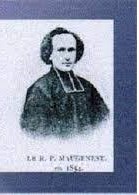
Birth of Emile Sebastian Maugenest , in Culan, France.
6 December, 1829
Father G. Crozat is appointed parish priest of St Cyr, Issoudun.
7 December, 1881
The church at Piazza Navona, Rome, is consecrated by Cardinal Monaco La Valetta, Protector of the MSC Congregation.
7 December, 1891
Father Pierre Marie Treand arrives in Sydney
7 December, 1907
The Congregation of Bishops and Regulars approves the MSC Constitutions, “newly revised and in some points reformed” by the General Chapter of 1907.
7 December, 1963
Msgr Friedrich Kaiser MSC (North Germany) Prelatus Nullius Caravelli, Peru, since 1957, is ordained Bishop at Dulmen, Germany.
8 December, 1854

Father Chevalier and Father Maugenest end their novena to the Blessed Virgin. It was planned to conclude on the day that Pius IX proclaimed Mary’s Immaculate Conception. Father Chevalier always considered this day as the foundation day of the MSC Congregation, and it continues to be so today.
8 December, 1865
Beginning of the Annals of Our Lady of the Sacred Heart in France.
8 December, 19 1872
Erection of the Association of Our Lady of the Sacred Heart in Saint Andrew at the Quirinal, Rome.
8 December, 1880
Erection of the first MSC House in Spain, at Barcelona.
8 December, 1889
Father Emile Merg MSC publishes the first edition of Australian Annals of Our Lady of the Sacred Heart.
8 December, 1904
Brother Robert South MSC hands over the keys of newly-named St Mary’s Towers, Douglas Park, Australia, to Father Jules Vandel, first Novice Master.
8 December, 1905
Erection of the Australian MSC Province.
8 December, 1908
The first eight MSC fathers arrive at Surigao, Philippines.
8 December, 1953
Direction of the Brazilian Problems of the Daughters of Our Lady of the Sacred Heart, Sister Marie Edmonde, Belgium, is the first Provincial.
8 December, 1956
The Missionaries of Christ (MC) are founded by Father C. Moser, MSC, in Germany. This is a community of religious missionary women, and it continues to exist today in six countries ~ Germany, Austria, Siberia, Congo (RDC), Brazil and South Africa.
8 December, 1962
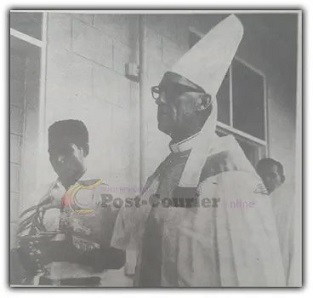
Bishop Virgil Copas MSC blesses de Boismenu College, Bomana, Port Moresby, PNG.
8 December, 1964
Erection of the PNG Province of the Daughters of Our Lady of the Sacred Heart, Mother Flavia O’Sullivan, the first Provincial.
8 December, 1969
Erection of Nicaragua as a community of the Central American MSC Region.
8 December, 1982
On the occasion of the centenary of her entrance into the novitiate and nomination as FDNSC Superior, the body of Mother Marie-Louise Hartzer is transferred to the Crypt in the Basilica in Issoudun.
8 December, 1984
Approval of the MSC Constitutions as rewritten by the General Chapter of 1981 in the light of Vatican Council II.
9 December, 1884
Bourbon Island: Father Verjus rejoins Father Couppe and the other missionaries, the three Italian Brothers and the five Daughters of Our Lady of the Sacred Heart.
9 December, 1954
Profession of the first Peruvian MSC Sisters in Lima, Peru
10 December, 1873
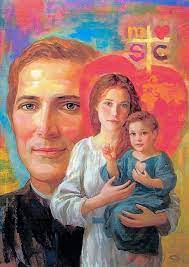
Father Chevalier preaches on the vigil of the coronation of Our Lady of the Sacred Heart in Sittard, Netherlands.
10 December, 1937
Msgr Buchholz MSC, North Germany, is appointed Apostolic Prefect of Shiquian, China..
11 December, 1978
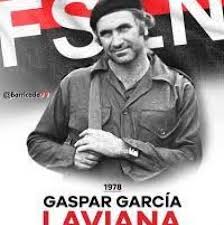
Father Gaspar Garcia Laviana, of the MSC Spanish Province, is killed in Nicaragua.
12 December, 1980
Erection of an MSC novitiate at Ofcolaco, Northern Transvaal, South Africa.
13 December, 1985
Father Paul Marx, MSC, France, appointed Coadjutor of Kerima, PNG, is ordained by Bishop at Moveave, PNG. His motto: “Cor Pauli, Cor Christi”.
15 December, 1907
Archbishop Kelly blesses foundation stone of additions to the Kensington convent of the Daughters of Our Lady of the Sacred Heart.
15 December, 1938
Father Joseph Lebeau, Belgium, is appointed Apostolic Administrator of the Vicariate of the Gilbert Islands, Kiribati.
16 December, 1875
The first three MSC Scholastics arrive in Rome. They find lodgings in the Procure of the Trappists with Father Jouet.
17 December, 1853
E.S. Maugenest, 'co-founder' with Father Chevalier of the MSC Congregation, was ordained priest at Saint-Sulpice, Paris. Maugenest left the MSC Congregation on 31 December, 1871, after being parish priest in St Cyr for 10 years. He entered the novitiate of the Dominican Fathers and ended his days as a Dominican. He and Chevalier always remained good friends.\
18 December, 1890
Six members are elected for the MSC General Chapter of 1891: Msgr Couppe, Vicar Apostolic of New Pomeranian; Father Treand, Superior of Glastonbury; L. Hartzer, Superior of Salzburg; Father Reyn, Superior of Antwerp; Father Ramot, Superior of Watertown and Father Klotz, Superior of Tilburg.
18 December, 1890
The MSC General Council accepts Father Ramot’s proposal to erect an MSC House in Germany. It is decided to authorise Father Linckens to carry out this plan.
19 December, 1883
Second departure for Melanesia: Fathers Ferdinand Hartzer, L. Vatan and B. Guillard, and brother Brother G.De Santis, leave Marseilles. Father Jouet is present the farewell.
20 December, 1898
A government employee visits Father de Boismenu at Waima, Papua, and tells him again to leave. He answers that he is resolved to stay there.
21 December, 1891
Arrival of the first Daughters of Our Lady of the Sacred Heart in New Britain, PNG.
21 December, 1952
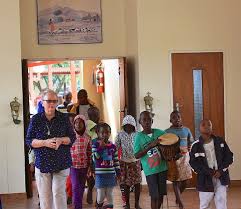
Four Daughters of Our Lady of the Sacred Heart receive their mission cross at Ballybay, Ireland, being sent to their first foundation in South Africa, Miss Sena, in the Northern Transvaal.
22 December, 1902
Erection of the Apostolic Prefecture of Dutch New Guinea, Irian Jaya, first residents at Langgur, first MSC foundation in Indonesia.
23 December, 1929
The Congregation for the Propagation of the Faith entrusts Eastern Papua to the Australian MSC Province.
24 December, 1894
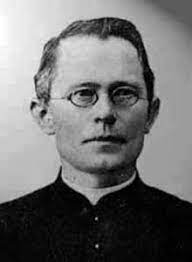
Father Hubert Linckens is appointed Procurator for the South-Seas-Mission and he is commissioned to make preparations for the foundation of a Mission House in Germany.
25 December, 1856
First (private) vows of Father Chevalier and Father Maugenest.
25 December, 1904
Father Founder puts this date on his Spiritual Testament for the MSC Congregation.
25 December
John Lee and John Graham first MSC professed at Kensington, Australia.
25 December, 1987
Eastern Papua Mission hands over the pastoral care of the Trobriand Islands, PNG, to the PIME Fathers.
26 December, 1881
Rome: Brother Henri Verjus obtains permission from his superior, Father Jouet, to visit hospitals, to buy some books about the missions and some tools for painting and sculpture. All this is done in preparation for the missions.
27 December, 1870
The birth of Alain G. de Boismenu in Saint-Malo, France. He was Vicar Apostolic of PNG from 1922-1946 and later Titular Archbishop. His cause has been put forward for beatification.
27, 1962
The mission of the Irish MSC in South Africa becomes the Apostolic Premature of Louis Trichard.
28 December, 1864
At four o'clock in the morning Father Victor Jouët arrived in Issoudun for the first time and discovers the statue of all Our Lady of the Sacred Heart. "... I fall at the feet of your enchanting image, and I stand up as your missionary for life. In one second, what a grace!"
29 December, 1948
First Daughters of Our Lady of the Sacred Heart foundation in Cameroon, at Ngowayang.
30 December, 1888
Father L.Couppe arrives in New Pomerania, PNG.
30 December, 1897

Sydney: Father de Boismenu says farewell to Fathers Jules Vandel, Lynch, Gsell and leaves for Papua aboard the Titus.
31 December, 1871
Father Maugenest leaves Issoudun to enter the novitiate of the Dominican Fathers.
